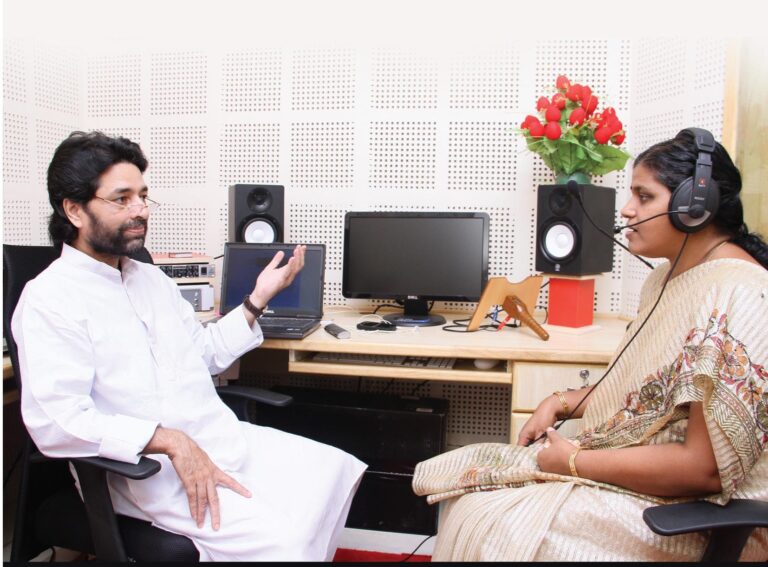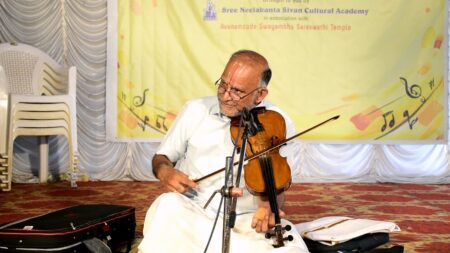Professional voice users, including singers, actors, teachers, salespeople, lawyers, and judges, are susceptible to voice disorders throughout their careers. Early intervention is crucial for optimal long-term therapeutic outcomes.
One of the primary issues faced by voice users is vocal fatigue. Vocalists often experience fatigue after extended periods of speaking or singing. This phenomenon shares similarities with muscle fatigue following exercise, as both involve the exertion of physical energy. In fact, some consider singing and public speaking to be forms of vocal athletics, suggesting that techniques used in muscle conditioning and training could also benefit vocal performance.
The body language of vocal fatigue includes frequent lip licking, efforts to relax facial and shoulder tension, perspiration, poor posture, and increased, unplanned breathing. Excessive throat clearing and swallowing are also common. Aurally, hoarseness and reduced intensity in high and low notes are noticeable, while the middle range remains relatively unaffected. Additional indicators of vocal fatigue in singers include an inability to sustain lengthy phrases and a loss of tone focus. This decrease in endurance is likely due to respiratory exhaustion, particularly the tiredness of the abdominal and intercostal muscles responsible for maintaining consistent subglottal pressure.
Other major issues are
- Hard attack on vocal folds
- Dehydration
- Laryngeal-pharyngeal reflex(LPR)
- Wrong breathing
- Problem of Alcohol and smoking
Tips to maintain good vocal health
- Practise pranayama: One effective way to take care of your voice is by practicing pranayama daily for at least 15 minutes. This technique helps increase oxygen intake, resulting in improved blood circulation throughout the body, particularly in the respiratory system and vocal folds. Remember, conscious breathing or deep breathing not only cleanses and strengthens the respiratory system but also enhances the quality of your voice.
- Rehydrate: In addition to pranayama, drinking sufficient water is crucial to maintain proper hydration. Aim to consume a minimum of 12 glasses of water daily. Proper hydration helps prevent dehydration in the vocal fold region and throughout the body, which can lead to vocal fatigue. As the production of voice involves heat energy, adequate water consumption helps regulate body temperature, ensuring optimal vocal function.
- Adequate rest and sleep: Another critical aspect of maintaining good vocal health is getting sufficient rest and sleep. Lack of sleep and bodily rest can result in vocal issues. Determine the appropriate amount of sleep based on your individual needs and circumstances. A well-rested body and mind are vital for peak vocal performance.
- Avoiding alcohol and smoking: It’s important to completely avoid alcohol and smoking. Alcohol causes dehydration in the body, particularly in the sound production region, while smoking weakens lung capacity or lung power. Both habits can significantly impair your ability to produce high-quality vocals.
- Avoid heavy food: Every singer or voice user should give a breathing space in the stomach. Heavy eating will reduce the best option for good breathing and this will reduce the voice capacity of the singer or voice user. A full stomach may not help the singer to move in the higher octave while singing. When the stomach is full abdominal muscles and diaphragm cannot move freely.
- Eat on time: Irregularity in eating will cause voice problems. When digestive acid is being produced, we should eat food. If not, this acid effect may cause pain in vocal region,
- Avoid fried and sour food: These things will affect the tone colour of the voice.
- Rest the voice: Give enough rest for the vocal fold (Chord): Best medicine for all vocal problems is the vocal rest.
- Balance emotions: Keep right balance of emotions and mental state. Undue tension, anxiety, emotional disturbance will affect voice and its power.
- Meditation: Meditation balances the body chemistry. 15 minutes of meditation (minimum) daily will help the singer or voice user to maintain good vocal health. Meditation will help the voice user to develop high level of concentration and that will help to balance the body chemistry and mounting tensions of each day
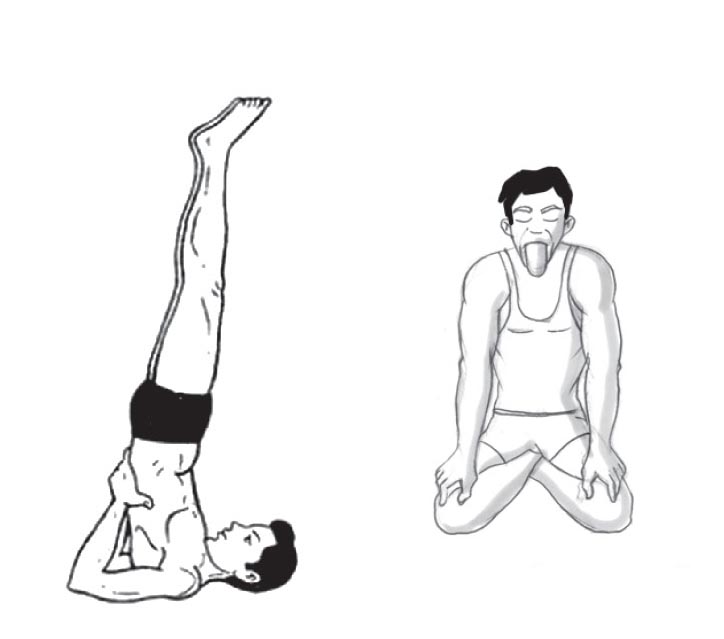
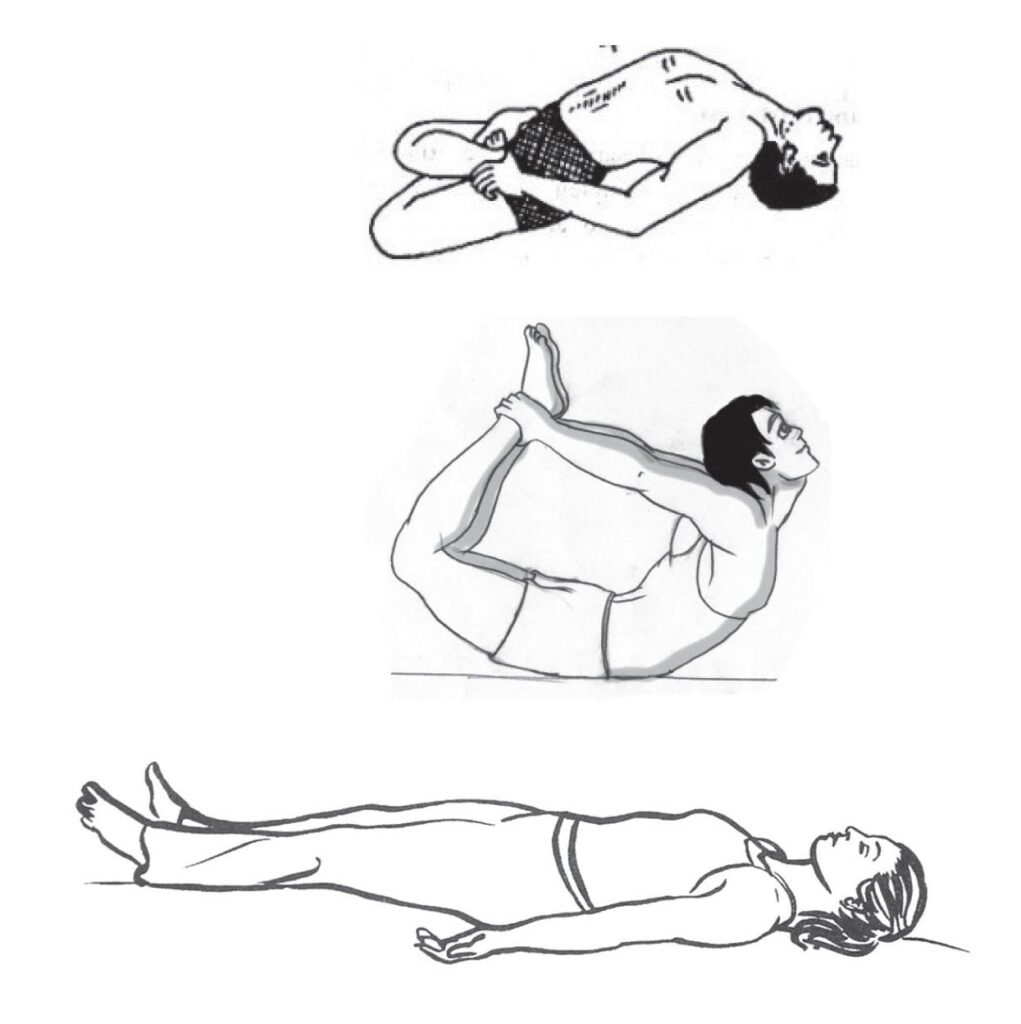
Exercises to improve vocal health
In this section two western techniques that could be applied to any kind of singing tradition in the world are explained. Some of the techniques which are developed in the west for vocal muscle relaxation are equally applicable in Indian voice tradition.
Exercise No.1. RASPBERY
The Velo-Pharyngeal part is closed and the Palate is up. The lips are loosely parted, allowing the singer’s tongue to be freely extended forward out of the mouth, but gently sealing the opening around the tongue. The teeth may touch the tongue, but do not hold it out of the mouth. The Jaw is loose, but only opens enough to allow the tongue to protrude without obstruction. While leaving the tongue freely extended and the lips surrounding it, the singers end an energized air stream up to the vocal tract, causing the tongue and lips to be set into regular periodic vibration. Raspberry can be coupled with voicing (pitched) or done unvoiced.
Exercise No.2 LIP BUZZ or Lip Trill
Lip Buzz is also known as ‘lip trill’. The Velo-pharyngeal part is closed and the palate is up. The lips are loosely held together,parted, the teeth are not in contact. The tongue lies in the floor of mouth in a neutral position. The jaw is loose, but only opens enough to prevent the teeth from coming into contact. While leaving the tongue free and the lips loose, the singer sends an energized air stream up the vocal tract, causing the lips to be set into regular periodic vibration. Raspberry can be coupled with voicing (pitched) or done unvoiced.
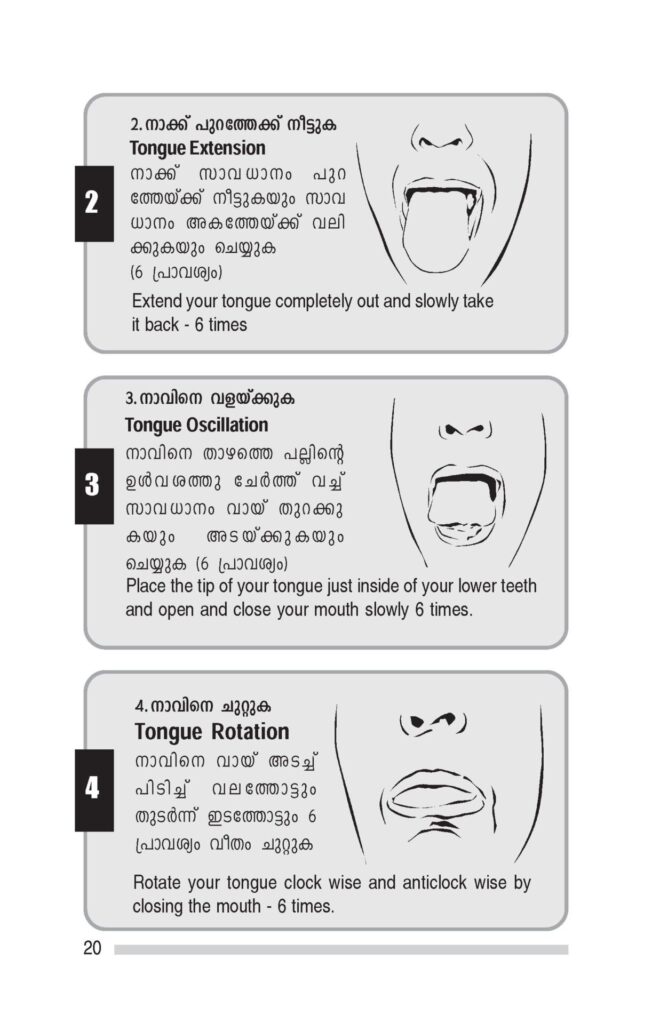
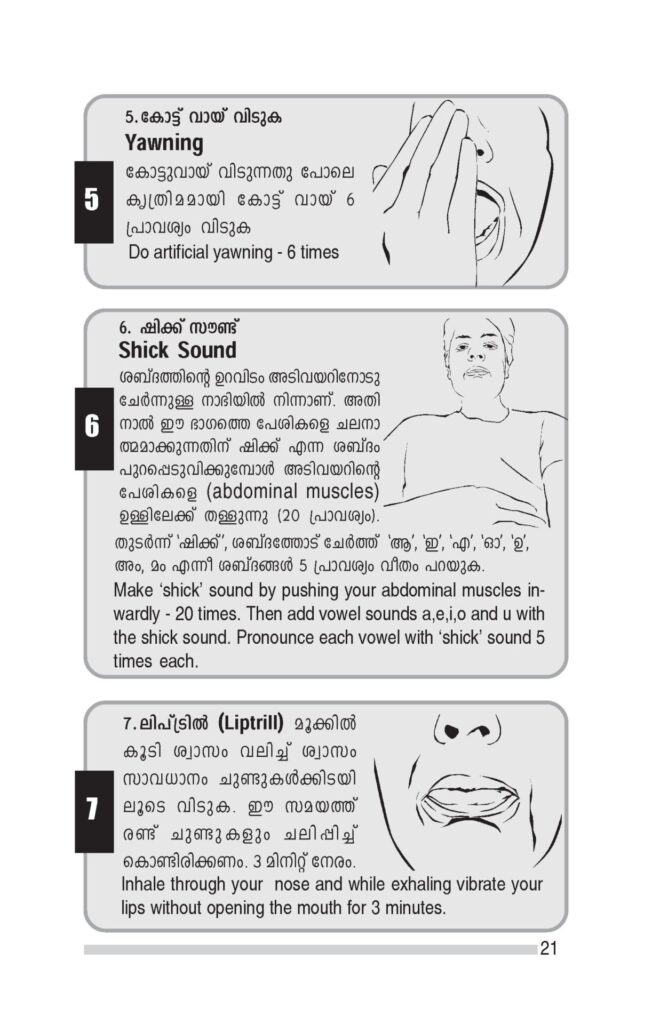
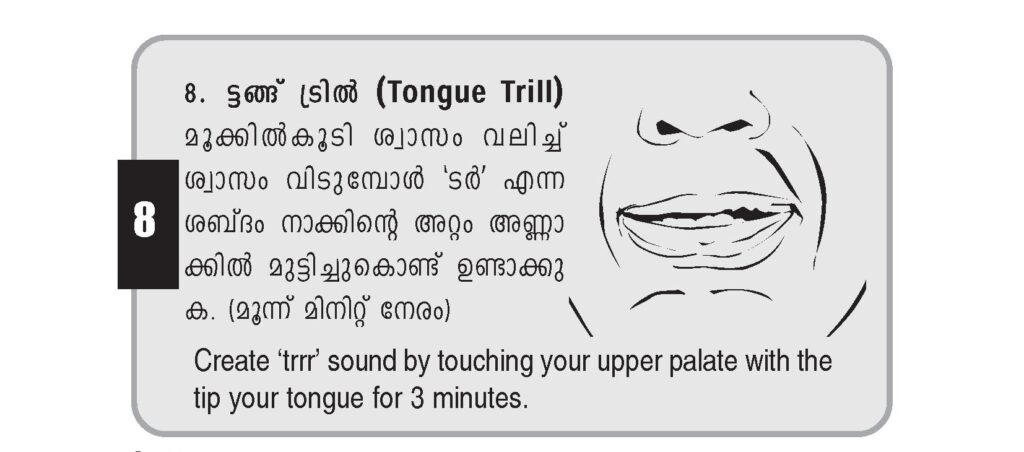
Advantages:
- This helps them experiencing starting, sustaining and ending a sound with air flow and air pressure appropriately balanced.
- It can also help them learn how to imitate and release a force without some of their customary tensions
- Independence of phonation and muscles of tongue, jaw and lips
- Lip trills and raspberries are useful in promoting functional freedom particularly in the lips; jaw and tongue. They do not have the acoustical drawbacks that the nasal consonants have.
- The lip trills are especially effective for singers with tight lips and jaw muscles, musicians suffering from Tempro Mandibular jaw dysfunction.
- The forward extension of tongue featured in the raspberry is useful to gently free up the tongue root.
- Empirical evidences from the voice studio suggest that both the lip trill and the raspberry help singers to establish appropriate balance between airflow and air pressure.
- The big key to great singing is the knowledge of how to use your breath to make the sounds.
Dr. Fr. Paul Poovathingal, a Christian priest and the first Ph.D. holder in Carnatic music, studied vocology at Columbia University in New York under Professor Jeanie Goffi. He also received his diploma from the National Center for Voice and Speech in Colorado, where he was guided by Dr. Ingo Titze. Notably, Dr. Poovathingal is the first vocologist to offer a vocology workshop and certificate course in India. His expertise is highly sought after, and he is regularly invited to lead workshops across India and abroad. The Voice Clinic he runs at the Chetana National Institute of Vocology serves as a shelter for individuals struggling with voice problems
Contact: 0487 2336667, 9447736667
Click to read the Part 1 and Part 2 of Vocology

